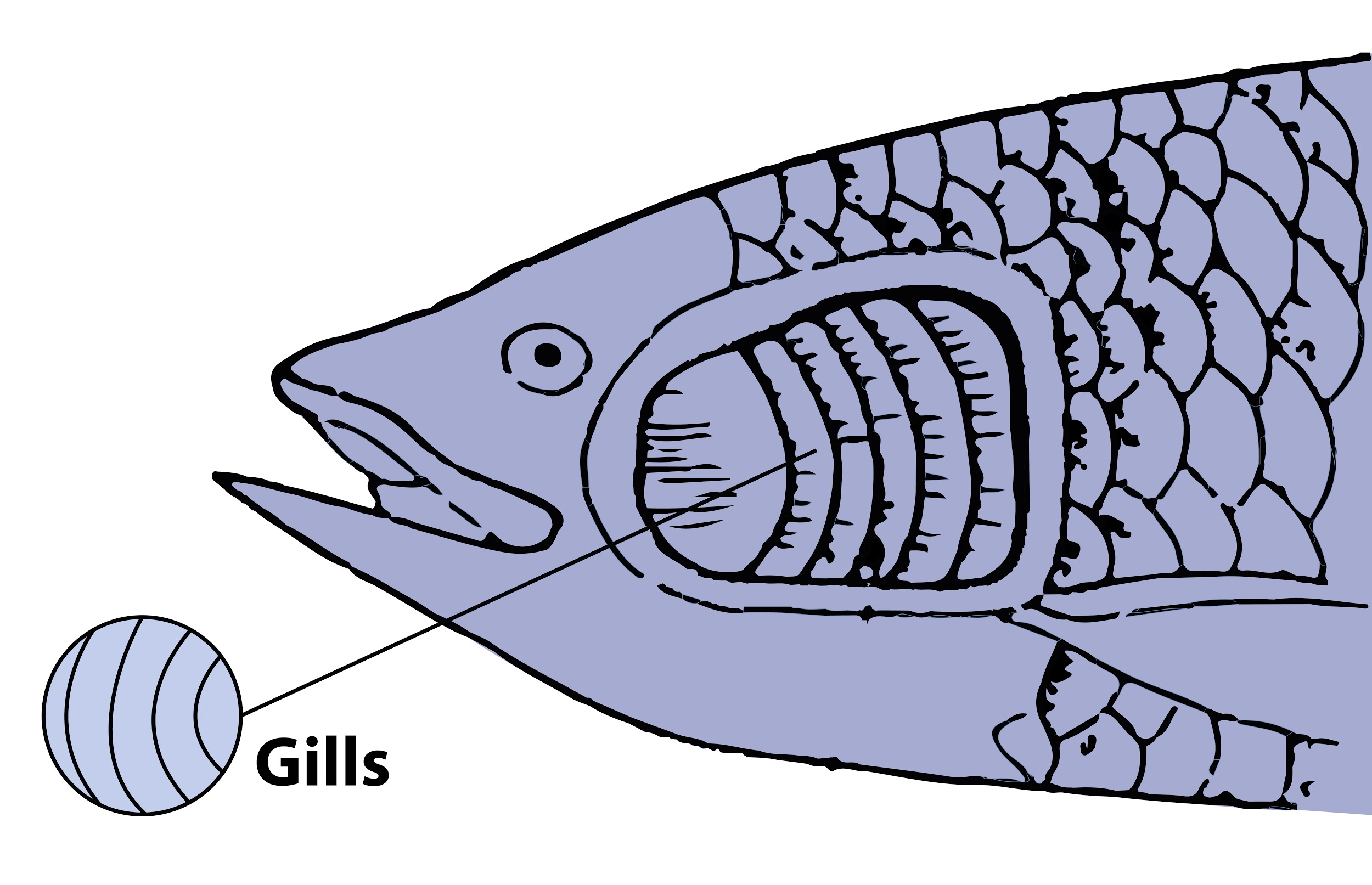
Why is the rate of breathing in aquatic organisms much faster than in terrestrial organisms?
(a) The amount of dissolved oxygen is fairly lower in water than air.
(b) Aquatic organisms like fishes obtain oxygen from water present in a dissolved state.
(c) Both (a) and (b).
(d) None of the above.
Answer
525k+ views
Hint: The rate of breathing depends on the oxygen requirements of the body as well as the availability of the oxygen in the surrounding environment.
Complete answer:
The rate of breathing in aquatic organisms is much faster than in terrestrial organisms because the amount of dissolved oxygen is fairly lower in water than air and also that aquatic organisms like the fishes obtain oxygen from water present in the dissolved state.
Since the quantity of dissolved oxygen in water is very much less as compared to the quantity of oxygen present in the air aquatic animals can breathe only dissolved oxygen, so to fulfill the need of required amounts of oxygen to the body cells for proper functioning the aquatic animals have to breathe faster as compared to terrestrial animals.
Additional Information:
Just like animals ashore, fish need oxygen to survive – but instead of breathing air, fish extract their oxygen from the water around them. This is often no easy feat because air can hold 33 times more oxygen than water, so fishes need to be far more efficient breathers than terrestrial animals.
Fortunately, fishes have evolved ingenious mechanisms to overcome their oxygen-deprived environment through their highly specialized gills. The gill is where fish absorbs oxygen from the encompassing water into their blood. However, oxygen can only diffuse into the blood at the gills only if the oxygen level is higher within the water than within the blood.

Fishes Respire through Gills
So, the correct answer is, ‘Both (a) and (b)’.
Note: -Oxygen would quickly pass from the water into the blood until the oxygen levels of the blood and water rapidly became an equivalent, and oxygen diffusion into the blood would stop.
-The maximum amount of oxygen that the blood could devour would be only half the entire amount of oxygen within the water.
-It proves that fish are true masters of breathing.
Complete answer:
The rate of breathing in aquatic organisms is much faster than in terrestrial organisms because the amount of dissolved oxygen is fairly lower in water than air and also that aquatic organisms like the fishes obtain oxygen from water present in the dissolved state.
Since the quantity of dissolved oxygen in water is very much less as compared to the quantity of oxygen present in the air aquatic animals can breathe only dissolved oxygen, so to fulfill the need of required amounts of oxygen to the body cells for proper functioning the aquatic animals have to breathe faster as compared to terrestrial animals.
Additional Information:
Just like animals ashore, fish need oxygen to survive – but instead of breathing air, fish extract their oxygen from the water around them. This is often no easy feat because air can hold 33 times more oxygen than water, so fishes need to be far more efficient breathers than terrestrial animals.
Fortunately, fishes have evolved ingenious mechanisms to overcome their oxygen-deprived environment through their highly specialized gills. The gill is where fish absorbs oxygen from the encompassing water into their blood. However, oxygen can only diffuse into the blood at the gills only if the oxygen level is higher within the water than within the blood.

Fishes Respire through Gills
So, the correct answer is, ‘Both (a) and (b)’.
Note: -Oxygen would quickly pass from the water into the blood until the oxygen levels of the blood and water rapidly became an equivalent, and oxygen diffusion into the blood would stop.
-The maximum amount of oxygen that the blood could devour would be only half the entire amount of oxygen within the water.
-It proves that fish are true masters of breathing.
Recently Updated Pages
Master Class 11 Computer Science: Engaging Questions & Answers for Success

Master Class 11 Business Studies: Engaging Questions & Answers for Success

Master Class 11 Economics: Engaging Questions & Answers for Success

Master Class 11 English: Engaging Questions & Answers for Success

Master Class 11 Maths: Engaging Questions & Answers for Success

Master Class 11 Biology: Engaging Questions & Answers for Success

Trending doubts
One Metric ton is equal to kg A 10000 B 1000 C 100 class 11 physics CBSE

There are 720 permutations of the digits 1 2 3 4 5 class 11 maths CBSE

Discuss the various forms of bacteria class 11 biology CBSE

Draw a diagram of a plant cell and label at least eight class 11 biology CBSE

State the laws of reflection of light

Explain zero factorial class 11 maths CBSE




